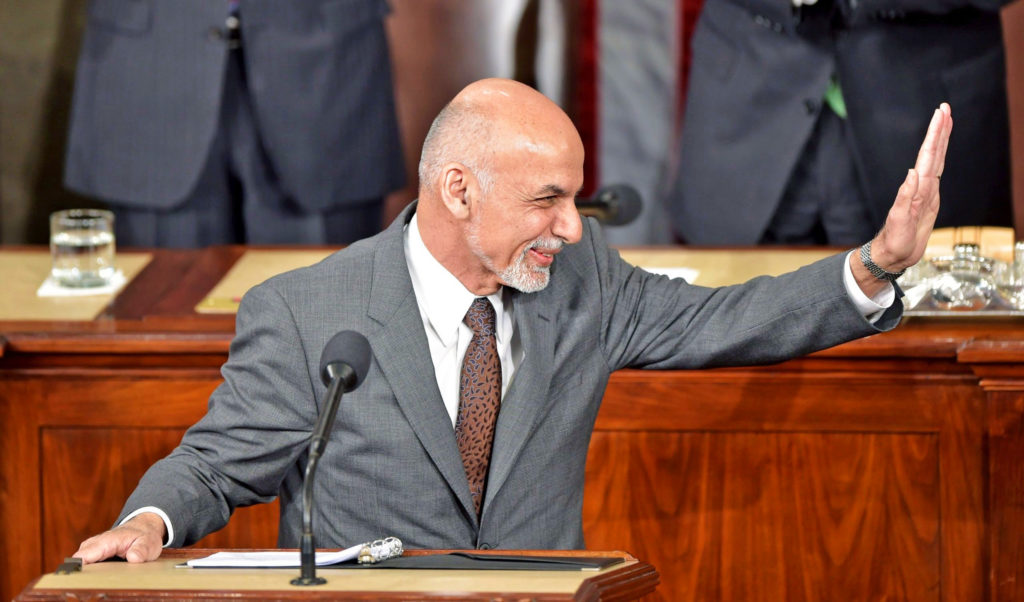[ UnHerd ] The man who lost Afghanistan

If there was one family in Afghanistan who incarnated the hopes, illusions and failures of the last two decades there, it was the Ghanis.
Ashraf, the father, was the country’s last president. A trained anthropologist, he believed in books, and the power of the ideas within them to move the world. His wife, Rula, a student in Paris in 1968, said she believed in women. Mariam, their daughter, became a filmmaker — she believed in Art. Their son, Tarek, believed in his father. His two-decade career in American academia and philanthropy is an echo of Ashraf’s own cloudless trajectory through blue-chip universities, the World Bank and think tanks. It was a tribute.
Whether it was itself a “real” country at all, or simply a vast outdoor laboratory worked by imperial meddlers and narco-criminals was hard to say. But every force and idea that acted on Afghanistan acted on the Ghanis too. They were both the victims of events and the instigators of them. They had been exiles, then leaders; they had been scattered across the globe and enthroned in Kabul. The family was Pashtun, and prominent, with a history of political influence. The Ghanis first left in 1977, as the communists began their takeover.
When he became President, in 2014, after a fraught and nervous election, he indulged his obsession. Like all Afghan presidents, Ghani moved to the Arg — a labyrinth of palaces within a 19th-century fortress in central Kabul. But unlike his predecessor, he immediately set about restoring the ruined royal library, with all its decaying antique volumes. His personal library was his most valuable asset, according to a New Yorker profile. He owned seven thousand books.
Ghani didn’t just read books — he wrote them. With his collaborator, the British human rights lawyer Claire Lockhart, he published Fixing Failed States: A Framework for Rebuilding a Fractured World (2008). “Novel strategies” were needed, they argued, to stabilise failed states that were contaminating “our fully globalised world” with anarchy.
By the end of the first decade of the 21st century, these chaotic zones were spreading. Ghani believed he had the ideas — a “sovereignty index” to be annually published by the UN, and a “citizens-based approach” to state-building — that could mop away the disorder. Fixing Failed States offered, according to a small review in Foreign Affairs, “a surprisingly hopeful vision”.
The vision was delivered as a TED talk in 2007. Ghani’s manner is cerebral, candid, impish, shrilly excitable — theory excites him. His voice is as squeaky as an old floorboard being stepped on. The TED stage suited a pedagogue like Ghani.
Ashraf had returned to the country with Rula in 2002 almost as soon as the Taliban were banished. First a finance minister under Hamid Karzai, he was an unsuccessful candidate for the presidency in 2009, and then the winner of that disputed election in 2014.
Afghanistan was a problem for the family in a way that America — where they had flourished — was not. America only needed Ashraf’s theories in the classroom. Afghanistan, Ashraf believed, could be saved by his theories. It was all in his book, and his TED talk. Opium farmers would make t-shirts. Embroiders in Kandahar would partner with Versace. Guns would become ploughshares. One day the daughters of Afghanistan would be like his own, free to study in America; free to make jam in Brooklyn; free to exhibit their work in Berlin.
When Ghani fled on Sunday he left behind half the population in poverty, a third of the population facing emergency levels of food insecurity, stagnant GDP, a massive trade deficit, a restive and furious countryside, and, in the words of one report, “a largely lawless, weak, and dysfunctional state”. Now the Taliban control it, down to the very last bumper car.
How shocked, how distressed he looked, when he surfaced this week in the UAE, exiled once more. When his security team extracted him, he said, he was “in a condition where I couldn’t even put on my shoes”. Did Ashraf Ghani realise that the things he put his faith in, the codes by which he lived his life — ideas and books, globalisation and rational governance — had been diminished?
Maybe he knew. All year, until almost the very end, he had promised his army could hold out against the Taliban, “forever“. But there was lucidity amidst the delusion.
“The future will be determined by the people of Afghanistan,” he told the BBC in February, “not by somebody sitting behind the desk, dreaming.”
He was wrong about the people of Afghanistan. Whether they stayed or fled, they would still dragged into the conflicts of others. But he was right about the dreamer behind the desk. Ashraf Ghani, unable to determine Afghanistan’s future, was describing himself.

